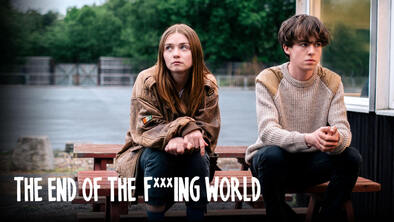 So, if you've not seen it yet 'end of the f**king world* is a channel four dark comedy-drama. It's about two lost teens, who make some bad decisions. At the moment (as usual) I'm playing catch-up. I'm watching this on 4OD and I'm currently on episode 8 of series 2. Yes, some of you will be laughing away thinking 'you're a bit late on this blog, fella', but this is a great series that I wanted to talk about for a minute. I want to talk about this series as a storyteller, because it does something I find remarkable, capturing and absolutely bleeding frustrating all at once. It offers little to no resolution on anything. ... and yet, that's what makes it amazing. This is such a clever narrative tool and it goes completely against my gut instincts as a writer. I love storytelling, I love everything to be wrapped up, everyone to connect and the story to come together. I usually like this to happen with good results for the characters, because I love writing a good popcorn pop-culture type story. What this series does so well is constantly stop those elements. It keeps the characters disconnected constantly, not allowing them to relate in their actions, dialogue and keeping their emotional states awkward and unfinished. This makes me feel so strongly for them and is such a good representation of both young teens and just generally people who are dealing with their own demons. It rarely offers a satisfactory conclusion for the story and it offers tiny glimpses of inner monologue to the audience, which allow us to get an insight into their feeling but ultimately just helps emphasise their lack of ability to display that too the other characters around them. We also rarely get anything that is a true, analytical explanation of their feelings or what they want. It's all fragments of a mind fighting itself.... so good and so irritating!? As I said, I find this method of storytelling completely fascinating, because it fights my nature as a storyteller and yet offers such a strong story and excellent characters. (Not to mention the great filming, editing and general style). Please go give this series some of your time (if you haven't already) and then come back and add something to this post. I'd love to hear what you think makes this script tick, where you feel the idea started and how the story arch came about, what techniques you feel are being used. Mostly, I want to hear your thoughts on this style of storytelling, Let's chat about this one folks - open door.
0 Comments
The folks at York Literature Festival will also be kindly tweeting about the Serious Flash Fiction competition, which will be running from Saturday 2nd of March - Friday 12th of April to coincide with the Festival. Jump over to the Serious Flash Fiction Website for more info, or head over to our twitter account @SFFiction.
Running on from its success last year, York Literature Festival, are running their Hub again this year. This is a space where York Literature festival aim to 'highlight the depth of creative talent from the city of York.' Its a very cool idea and is being supported by York Theatre Royal as well as few other locations. Guess what?
Hub events are either very cheap or free, with a request that anyone coming along donates what they think the session was worth to help support the Festival and local writers. I have opted for the free version and hope anyone coming along will chuck a couple of quid in to keep the festival and this great opportunity going.
Despite being free, you still need to book tickets, so head over to York Theatre Royals booking page. I would love to see you there. So some time ago I wrote a short story where I purposefully stole and used as many song lyrics within the story as I could. It was great fun trying to craft multiple song lyrics into a succinct and following story, so I thought I'd share it. I've added the story as an attachment, so that you can see all the referencing of the song lyrics within. I hope you enjoy. Please do comment. I'm very excited to announce the launch of the new Serious Flash Fiction Anthology. Again this year we've made this a collection of all volumes of the competition so that this years' anthology hold all three volumes. I am so pleased with the quality, creativity and diversity of stories in this new anthology. The contributors have out done them selves again. If your looking for something different to read, fancy some bite size fiction and want to get your synapses firing, pick up a copy now. It really is the perfect book for a brief creative escape, sparking writing ideas of your own, or just simply whipping through some great little stories that are very different to anything else on the bookshelves out there at the moment.
Congratulations again to this years winning contributors who made the pages. Serious Flash Fiction is now wrapped up for the year and the winners announced. This years winners have been an amazing selection of creative and inspirational writers. The list below shows all those who will be in the Serious Flash Fiction anthology this year. The anthology is in its final publishing stage; keep your eyes peeled here & at @SFFiction for the big anthology release. Congrats to all the folks below who will feature. :]
The project has been running for two years and, from relatively modest beginnings, is starting to build in size. We'd love everyones help this year to make it as big as we can, so please spread the word, follow our twitter account and share any way you can.
It's really simple to get involved, just log on to twitter (or create an account - we dare you!), write your story and then use the hashtag #SFFiction to enter. If you want more info, examples, details, then just head over to www.seriousflashfiction.weebly.com, or log straight onto twitter to give it a go. 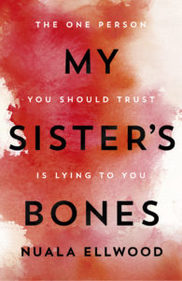 On Thursday night I went along to Nuala Ellwood's book launch for her new novel, My Sister's Bones. It was a brilliant event, hosted by Waterstones in York. Nuala had a in conversation discussion with her Editor, read from the novel and took questions from the audience. She spoke about how she taps into her stories by grounding them in landscape; about her research into female war reporters and PTSD, which feature in the novel and about her own experience of connecting with these ideas and her own writing. It was a truly fascinating discussion and one, I could tell, the whole audience wished could have lasted longer. The book itself is out now and explores the lives of two sisters. Kate Rafter is a successful war reporter. She's the strong one. The one who escaped Herne Bay and the memories it holds. Her sister Sally didn't. Instead, she drinks. When their mother dies, Kate is forced to return to the old family home. And on her first night she is woken by a terrifying scream.
Ben: That’s very cool. Do you often have a question like this when you set out to write a story. Is that what you use to keep the writing together as the story progresses, or do you find the question as you write? Adam: Not consciously, but looking back at the three books I’ve completed with each of them I did have a question in mind while writing them. With The End I wanted to ask what if a person’s consciousness remained after they turned into a zombie and how would the consciousness cope with what they were forced to see? With Angela I wondered what an absence of love might do to a person as they approached old age. Would they look for love in unusual places, and when they found it what would they do with it? And with Drive obviously the question was what might make a man kill, and what might make him stop. Thinking about it now, my uncompleted work tends not to have these kinds of considerations. Those stories tend to spiral out of control and eventually I abandon them because I realise I don’t know where they’re going. So on reflection, yes, I do think having a question to explore and come back to is a good way of giving focus to the story and crucially, the mental energy to actually finish it. 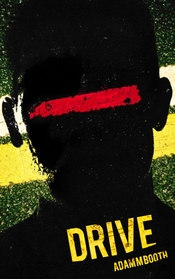 Ben: So Drive has the catch line ‘what drives a man?’. What drives you to writing horror, what is it about that genre that grabs you? Adam: I’ve always been a fan of horror. I think one of the first books I read was The Hellbound Heart by Clive Barker, which later became the film Hellraiser. I also read Carrie by Stephen King and American Psycho by Brett Easton Ellis when I was very young – probably too young – and they all had a big impact on me and no doubt influenced the kind of stories I write now. I think what I love about horror, in particular horror literature, is how great a tool it is for exploring the inner workings of human nature, both as a reader and writer. As a writer, thinking about what your characters are most afraid of is a good way of getting to their emotional core and of giving them layers that hopefully make them more interesting and sympathetic, or as sympathetic as a serial killer or zombie can be. Also horror is a great opportunity to use metaphor and allegory, which I like to do. Ben: Absolutely; the imagery in your books is great reading. What I find brilliant about all your novellas is how character driven they are and how far you let us see into the characters' thinking. What is it about putting the reader right at the centre of that thought process; why do you do it to us, Adam?! :] Adam: Yeah, sorry about that! I just find getting inside the heads of flawed, monstrous people really interesting. I want my readers to be appalled by the things my characters do, but to also get to a point where they understand why they do what they do. I love the idea of getting my readers to feel sympathy for monsters. Ben: I think that is exactly what draws me back to read each one, Adam, despite the fact that I don’t read a lot of horror; so, mission accomplished. One of the things I love about Drive is that, despite a setting that could involve so much gritty ‘reality horror’, you almost purposefully keep us from that and put us completely in the David’s head on his journey. Was that intentionally, or just the way it played out? Adam: In Drive I tried not to be too obvious with the horror and gore. Because it’s a story about a serial killer it would have been easy to have lots of dismemberment and murder but the real horrors in Drive are the corrosive effects of living with guilt, and the idea that your past always catches up with you. Yes, David is a terrible, terrible human being, but he is still a human being, and no matter how bad he’s been, as long as he’s breathing there’s a chance he might reflect on his life and feel regret. To be inside a head like his, with all its memories of murder and violence, and to suddenly grow a conscience is one of the most terrifying things I can imagine. Ben: You recently mentioned on twitter that you’d finally looked at your reviews for Drive, which has been out a while. A lot of people who’d love to self-publish are put off by the thought of reviews and audience feedback at the far end. Do you have any advice for them? Adam: Accept all your reviews, but ignore most of them. Reviews are a necessary evil. As a self-published author you are going to have to read them, because you’re going to have to use them to market your work, but to take any of them to heart is counter-productive to your creativity. The bad ones can paralyse you, but even the good ones can be bad for your work. You can get addicted to the positive affirmation, and the urge to get good feedback sits in your head and influences what you write until you’re no longer writing because you’ve got something to say, you’re writing to win points. Ben: That’s a really interesting way of looking at it and I think you're spot on. Obviously we all want to have readers but I think one of the beauties of self-publishing is the freedom to write what you want and not have to shape it for the mass market. Can you tell us more about your first experience of reviews?
I felt good about myself and motivated to keep writing. Then something occurred to me. If four or five star review days are good days, what will a one star review day feel like? I started to dread it, and of course it inevitably came. One solitary star, and a pretty scathing review. Of course I felt terrible. I read the review over and over and I actually agreed with it! I started to really hate the book I’d written and started mentally distancing myself from something I’d once been really proud of. By this time I’m well into the second and third books and if I hadn’t put so much work into them I might have walked away from them both. And honestly I probably did take a bit of a break from writing, but what I remembered at some point during that break is how nice it was to write the first book with no expectation, to create for the sake of creation without an audience in mind or critical or financial success as an aim. I remembered that it was the act of writing for myself and without restriction that I enjoyed, and that any praise or money that came as a byproduct of doing it was just icing on an already awesome cake, so I just got on with it. Now I write what I want, when I want, and I love it. I don’t think about how it’s going to be received or if I’m targeting a certain demographic, I just write stuff that I find interesting and damn the consequences. I’m still incredibly grateful for my positive reviews because they mean someone somewhere has connected with my work, but I don’t chase them, and I don’t use them as motivation. I’m also grateful for my bad reviews because they’ve given me a tougher skin and a better perspective. Some people are going to hate what I do, and that’s fine because the only people I need to like my books, are the people who like my books. If anyone out there is holding back from publishing their work because of fear of criticism I would say to them, feel the fear, but do it anyway. All the best things in life carry risk. Self-publishing can be a rollercoaster, but being a contributor to culture, rather than just a consumer of it, is worth the highs and lows.
Ben: Yep, I think us Brits are particularly bad at it. Do you find that the process of creating graphics as you write, actually helps with the building and visualising of the story itself?
Adam: Yes, I really do actually. If I get to an obstacle with a story I find that creating something visually can help me get over it. Sometimes I need to figure out a plot point or there’s some dialogue or scene that just doesn’t feel right and I need to stop writing for a while so I can figure it out and I find that creating an image or graphic when I can’t write helps me stay anchored in the world and helps me understand the tone of the book and stick to it. I do the same with music. All my books have had playlists that I would listen to while I’m drinking coffee and getting ready to start writing and those too help me get into a certain headspace that suits that particular story. Ben: That’s really interesting, all my larger pieces of work have had a playlist too and I play a little guitar and wrote a song during a tough part of my second book to help me work through the problem. I think it helps to keep the creative bit of your brain moving whilst giving yourself time to think through the problem. I know Stephen King has referred to that time as ‘leaving it to the boys in the basement’. So, Adam, what’s the next project on the cards? Adam: At the moment I’m working on another book set during the same zombie apocalypse as The End. It’s about a married couple who live very remotely and who are so wrapped up in their dysfunctions they don’t realise the world is ending until it’s already gone. Kind of like Kramer vs Kramer but with zombies. It’s going to be called What Remains and I’m going to release it first as an audiobook on Youtube, which will hopefully be narrated by the amazing Rob Goll, who also narrated Angela. I’m also working on a body-horror called Creep, and a weird abstract adult fairy tale thing called The Night That Never Ends. Also I have this rambling, messy sci-fi story that I’ve been writing for years that I doubt I’ll ever finish to be honest. Ben: HA. That’s brilliant. I find people who can have a couple of projects live at once very inspiring. I really struggle to work on more than one thing at a time. Well, good luck with all the projects and I’ll definitely be keeping an eye for the next one I can get stuck into. For our readers, do check out Rob Goll, especially his Angela audiobook collaboration with Adam; Angela is my favourite of Adam’s books so far and Rob really brings it to life. Thanks again, Adam. Want to know more about Adam M Booth and his writing. Here’s the info: www.adammbooth.com A bite of ‘Drive’: “See the man, sat in the vehicle, neon lights wrapping over his windscreen and his eyes and his mind, night time filling in gaps wherever there was an absence of anything. Love. Guilt. Mercy. Blank spaces.” Get it now: https://www.amazon.co.uk/dp/B01J8UDT82 |
AuthorBen Warden - Editor of the #SFFiction project and author of 'Life Without', which made the top ten literary fiction e-books on amazon. Categories
All
Blog Archive
January 2020
|

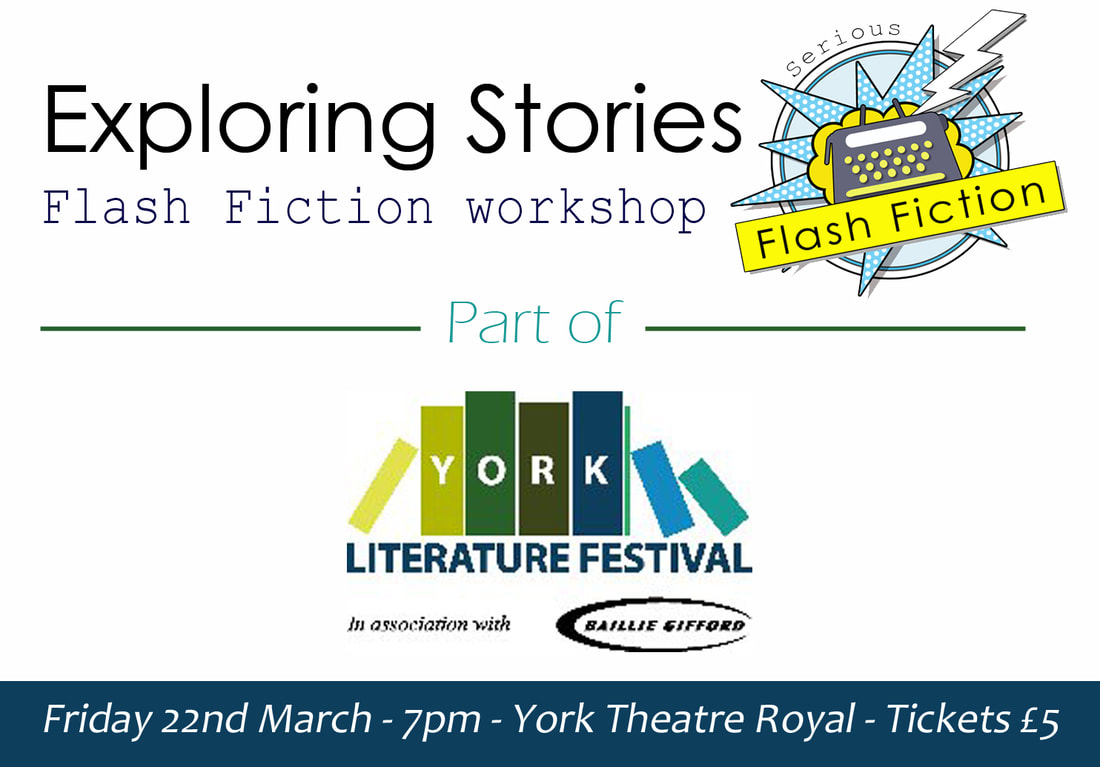
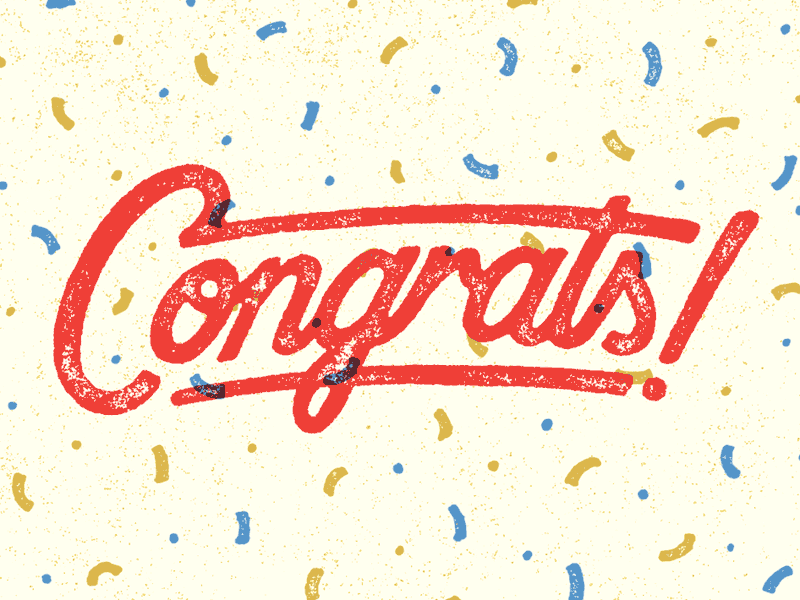
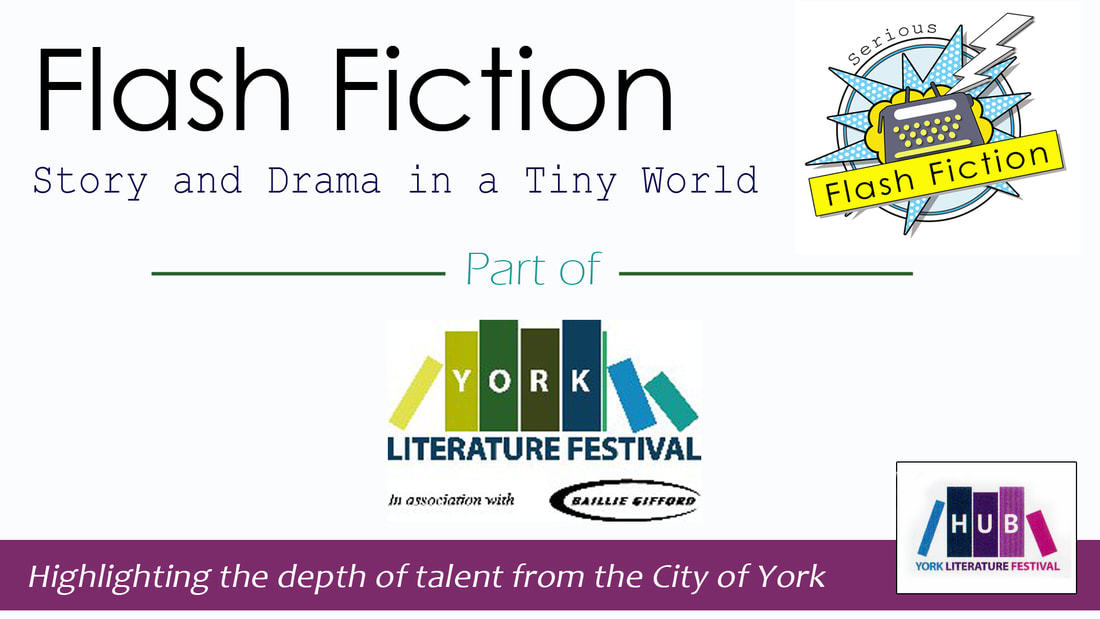
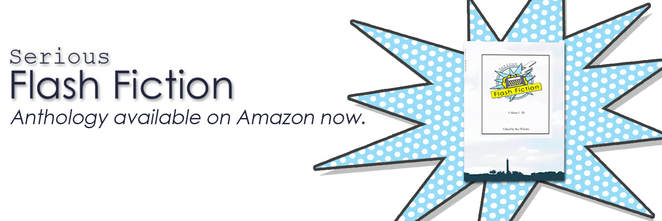

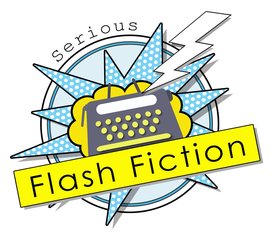
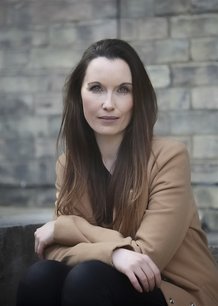
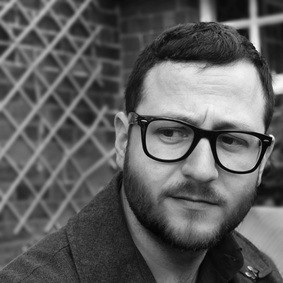
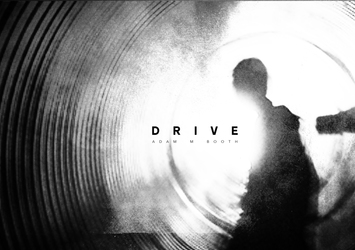
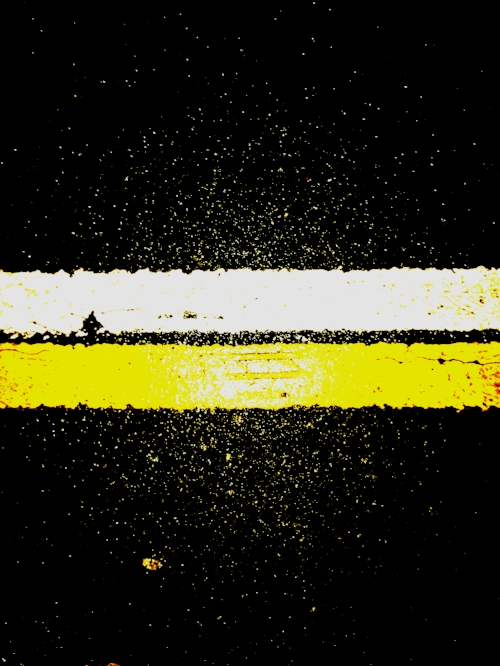
 RSS Feed
RSS Feed
